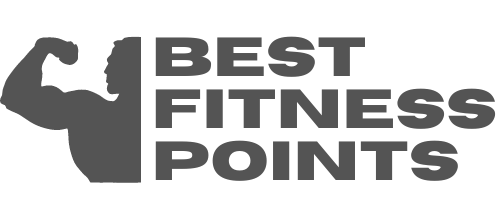Is Bacon Good for Bulking? The Truth Revealed
Last Updated on December 29, 2023 by Justin Harris
Is Bacon Good for Bulking: Bacon can be beneficial for bulking due to its high-fat content, providing extra calories for weight and size gain. Incorporating bacon into a calorie surplus diet can support the bulking process.
When it comes to bulking, many people wonder if certain foods can contribute to their weight and muscle gain goals. One such food that often sparks curiosity is bacon. Bacon is a popular breakfast item known for its delicious taste and high-fat content.

However, when it comes to bulking, is bacon actually good for you? We will explore the effects of bacon on the bulking process and determine whether it can be a beneficial addition to a bulking diet. Whether you’re an avid bacon lover or simply looking for more options to include in your bulking regimen, read on to discover the truth about bacon and its impact on bulking.
Dirty Bulking Vs Clean Bulking: Which Is Better?
Dirty bulking and clean bulking are two different approaches to gaining muscle mass. Dirty bulking involves consuming a surplus of calories, often from unhealthy and processed foods, to quickly gain weight. On the other hand, clean bulking focuses on consuming nutrient-dense foods to promote muscle growth while minimizing fat gain. The key differences between dirty bulking and clean bulking lie in the types of foods consumed and the overall approach to nutrition.
Dirty bulking typically involves eating foods high in saturated fats, sugars, and fast food. This approach may lead to rapid weight gain but can result in high levels of body fat and potential health risks. Clean bulking, on the other hand, emphasizes whole foods such as lean proteins, complex carbohydrates, and healthy fats. This approach prioritizes nutrient quality and promotes sustainable muscle growth.
When it comes to bacon, it can be included in both dirty bulking and clean bulking diets. Bacon is a good source of protein and contains essential amino acids, making it suitable for muscle growth. However, it is important to choose high-quality bacon and consume it in moderation to avoid excessive fat intake and other potential health risks associated with processed meats.
The Impact Of Bacon In A Bulking Diet
Bacon is often considered a delicious indulgence rather than a health food, but it can actually be a valuable addition to a bulking diet. While it may not be the most traditional source of protein, bacon does offer a decent amount of protein. A slice of bacon contains about three grams of protein and is considered a complete source of protein, as it contains all nine essential amino acids.
In addition to protein, bacon also contains other important nutrients. It is rich in fats, which are essential for hormone production and energy. Bacon is also a good source of vitamins and minerals, including B vitamins, selenium, and phosphorus.
Protein is an essential macronutrient for muscle growth and repair, making it crucial for those who are trying to bulk up. Including bacon in your bulking diet can provide a tasty and convenient source of protein, especially for those who follow low-carb or ketogenic diets. However, it’s important to consume bacon in moderation and balance it with other protein-rich foods.
Considerations When Including Bacon In A Bulking Diet
|
When considering including bacon in a bulking diet, it is important to keep portion control and moderation in mind. While bacon can be a good source of protein and contains essential amino acids, it is also high in saturated fat and sodium. To maintain a balanced diet, it is recommended to balance bacon consumption with other protein sources such as lean meats, poultry, fish, eggs, and plant-based proteins like legumes and tofu. Incorporating bacon as part of a well-rounded meal plan can add flavor and variety to your diet. |
Bacon Alternatives For Bulking
- Is bacon good for building muscle?
- Is bacon a good source of protein?
- Dirty bulking vs clean bulking: which is better?
- What foods to avoid when bulking?
- Alternatives to bacon for bulking
When it comes to bulking, many people wonder if bacon is a good choice for gaining muscle. Bacon is often seen as a high-calorie food due to its fat content, but it can also be a good source of protein. In fact, bacon contains nine essential amino acids, making it a complete source of protein. Additionally, bacon is low in carbohydrates and has zero grams of carbs per slice.
This makes it a suitable option for those following a low-carb diet. However, it’s important to note that bacon should be consumed in moderation and as part of a balanced diet. Other protein-rich alternatives to bacon include lean meats like turkey, beef, and chicken. These options provide a similar protein content while being lower in fat.
Ultimately, the choice between dirty bulking and clean bulking depends on personal preferences and goals. Both approaches have their advantages and disadvantages, so it’s essential to find what works best for you. When bulking, it’s also important to avoid foods that are high in simple carbohydrates and unhealthy fats. These include deep-fried foods and alcohol, which can hinder muscle recovery and overall performance. By making smart food choices and incorporating a variety of protein sources into your diet, you can support your bulking goals while maintaining a healthy lifestyle.
Read Also,
- Are 16 Inch Biceps Big
- Elliptical for Short Person
- Creatine Doesn’t Dissolve
- Incline Bench for Shoulders
- How to Use an Exercise Bike
- How Long for Npp to Kick in
- Does Creatine Make You Gassy
- Are Air Forces Good for Squatting
- Best Exercise Bike for Short Person
- Which is Better Hydroxycut or Dexatrim
- Why Do Some Cable Machines Feel Heavier
Conclusion
While bacon can be a delicious addition to a bulking diet due to its high fat content and ability to provide extra calories, it is important to consume it in moderation. Bacon should not be relied upon as the primary source of protein, and a variety of other protein-rich foods should be incorporated into the diet for optimal muscle gain.
Remember to balance your overall nutrition and consider the impact of saturated fats on your health.






